The Pseudokinase MLKL and the Kinase RIPK3 Have Distinct Roles in Autoimmune Disease Caused by Loss of Death-Receptor-Induced Apoptosis
- PMID: 27523270
- PMCID: PMC5040700
- DOI: 10.1016/j.immuni.2016.07.016
The Pseudokinase MLKL and the Kinase RIPK3 Have Distinct Roles in Autoimmune Disease Caused by Loss of Death-Receptor-Induced Apoptosis
Abstract
The kinases RIPK1 and RIPK3 and the pseudo-kinase MLKL have been identified as key regulators of the necroptotic cell death pathway, although a role for MLKL within the whole animal has not yet been established. Here, we have shown that MLKL deficiency rescued the embryonic lethality caused by loss of Caspase-8 or FADD. Casp8(-/-)Mlkl(-/-) and Fadd(-/-)Mlkl(-/-) mice were viable and fertile but rapidly developed severe lymphadenopathy, systemic autoimmune disease, and thrombocytopenia. These morbidities occurred more rapidly and with increased severity in Casp8(-/-)Mlkl(-/-) and Fadd(-/-)Mlkl(-/-) mice compared to Casp8(-/-)Ripk3(-/-) or Fadd(-/-)Ripk3(-/-) mice, respectively. These results demonstrate that MLKL is an essential effector of aberrant necroptosis in embryos caused by loss of Caspase-8 or FADD. Furthermore, they suggest that RIPK3 and/or MLKL may exert functions independently of necroptosis. It appears that non-necroptotic functions of RIPK3 contribute to the lymphadenopathy, autoimmunity, and excess cytokine production that occur when FADD or Caspase-8-mediated apoptosis is abrogated.
Copyright © 2016 Elsevier Inc. All rights reserved.
Figures
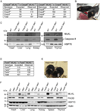
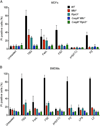
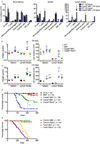
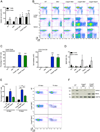
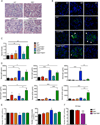
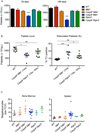
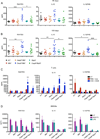
References
-
- Bossen C, Ingold K, Tardivel A, Bodmer JL, Gaide O, Hertig S, Ambrose C, Tschopp J, Schneider P. Interactions of tumor necrosis factor (TNF) and TNF receptor family members in the mouse and human. The Journal of biological chemistry. 2006;281:13964–13971. - PubMed
Publication types
MeSH terms
Substances
Grants and funding
LinkOut - more resources
Full Text Sources
Other Literature Sources
Medical
Molecular Biology Databases
Miscellaneous

